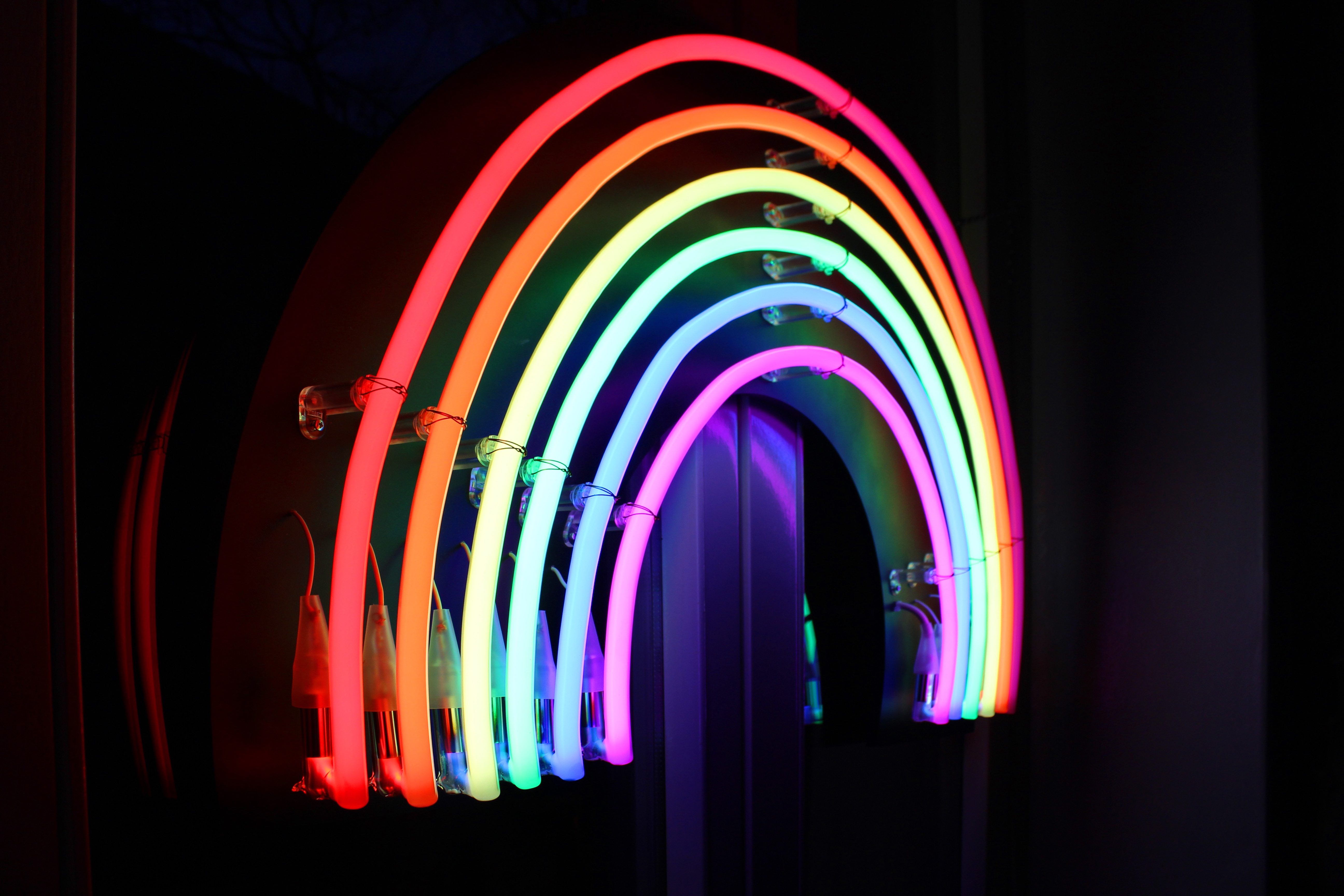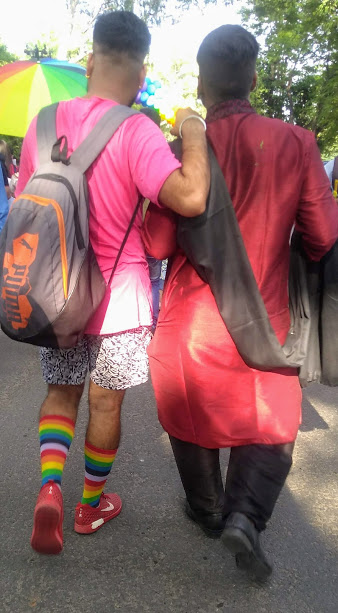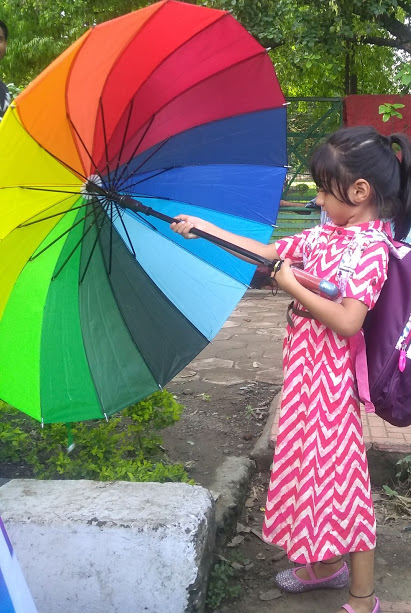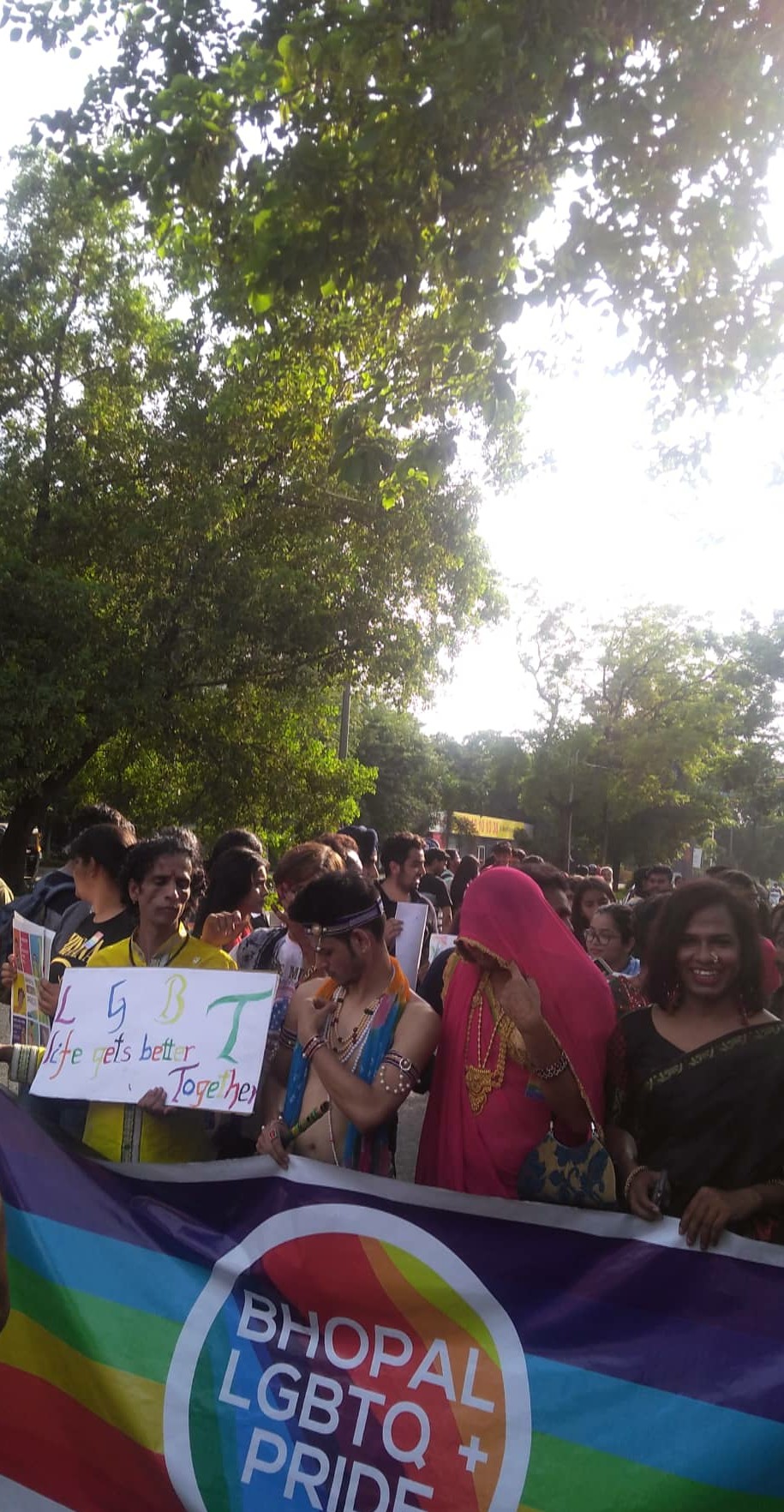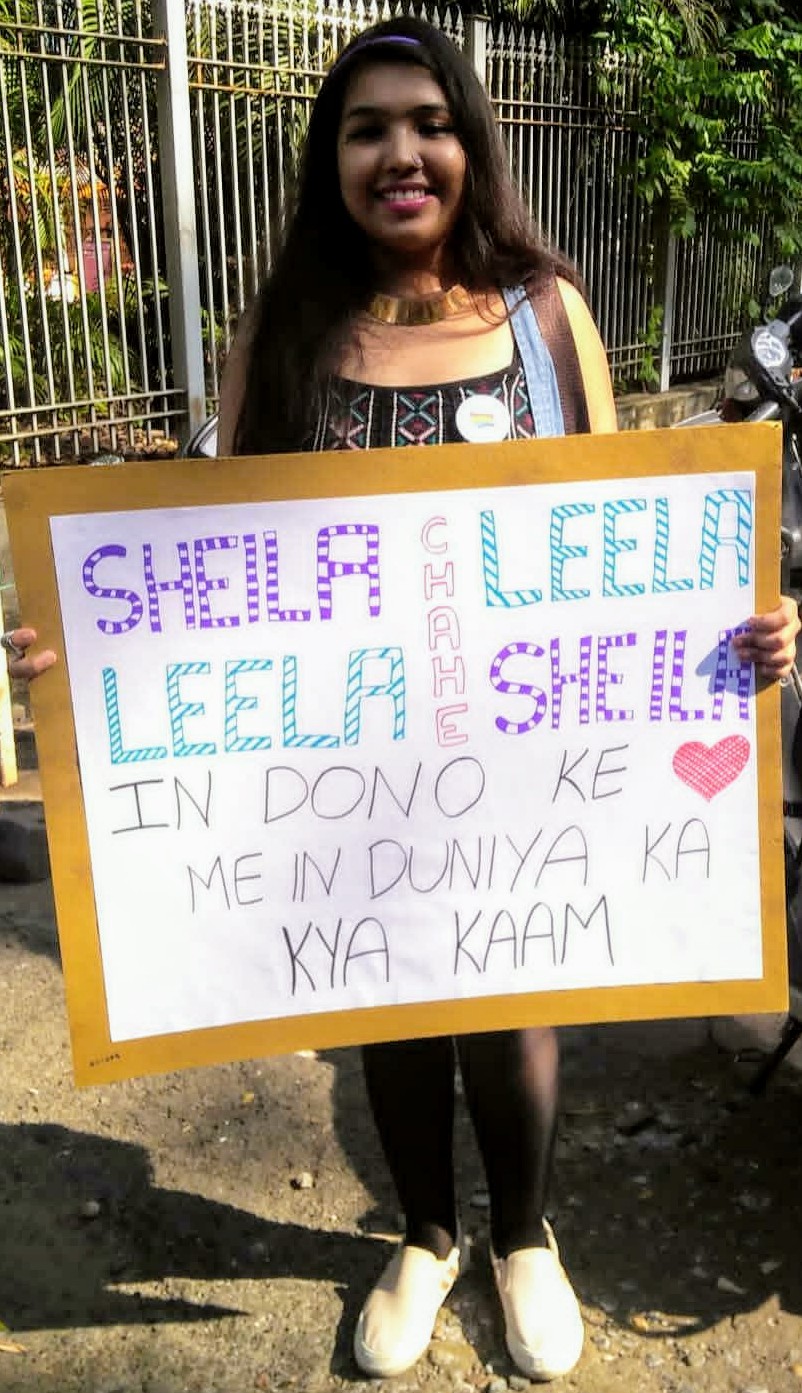“Kaunsa kanoon sabse battar? Teen sau sattatar, teen sau sattatar!” (Which law is the worst? 377, 377!) On Sunday, July 15, Bhopal celebrated its second annual pride parade. People gathered to raise slogans like “We are here and we are queer” and “I am gay and that’s okay”.
Organisers of the event put up a lot of pre-events to the Pride to build up the excitement. The events kicked off with a movie screening of ‘Margarita with a Straw’. The weeklong bonhomie also included discussions about the challenges queer Indians face in the course of their lives, and the lack of empathy that makes things much harder. Bhopal Pride, along with the Bhopal Anarchist Reading Group also organised a reading of the Manifesto of Gay Liberation Front to foreground the marginalisation of homosexual and non-binary individuals in social, culture and political spheres.
The organisers also put together a personal storytelling session to create a space for people to express different identities, in celebration and trepidation alike: to relive journeys and enliven Bhopal’s queer community.
The penultimate event before the actual march was a screening of I Am, 2011 Indian anthology film by national award-winning film and TV director Onir, who was also present to do a question and answer session with attendees after the movie.
Local organisations like Sangini and Eklavya put together the week-long event, and found support and solidarity from other groups like the Badlav Samiti in Indore.
Sunday, Pride day, began with ‘Men in Makeup’ – an event that pushed the boundaries of gendered dressing and challenged the stereotypes that stifle our understanding of beauty and fashion.
Borrowing from the tradition of drag, Men in Makeup was an attempt to encourage people to explore their identities – flamboyant, understated or whatever else they wish to be. With colourful saris, bright outfits, balloons and a lot of glitter, it felt like a rainbow army had taken over the streets of Bhopal.
This year, the march’s organisers came with a manifesto demanding equality. They collectively stated, “We want freedom for the Queer community and we believe its existence incompatible with the existence of orthodox gender norms and draconian law. Our struggle stands with our rights to love freely who we want without being subject to prejudice and violence. Our struggle stands for the right to privacy and agency in regard to our sexualities. We want liberty; we seek to claim for every member of the Queer community the accessibility and right to do whatever job and work we please and the means and education by which to do it. As a society, we must come together to achieve these goals.”
The Supreme Court’s ongoing hearing to decide on Section 377’s constitutional validity hung over all the events, with everyone expressing different opinions on the topic.
One participant who wished to remain anonymous said, “For far too long, many in the queer community have been focused on the law and prides. Legal recognition is important, yes, and section 377 is a reprehensible law that must go, but our social and cultural spaces must become more inclusive.”
“We just want to be ourselves unapologetically. We are not ashamed of who we are and you should not make us feel otherwise,’’ said another activist, brimming with pride.
“Freedom should be accessible to all,’’ an active supporter added.
A mother who brought her child to the parade explained, “I want her to support different life choices and understand the power of love.”
This Pride was all about the queer community’s celebration of and demand for recognition and inclusion – and to let people know that no love is unnatural. Only their hate is.
Aishwarya Shrivastav is a 21-year-old history graduate from the University of Delhi and author of ‘Mouthpiece’.
Image credits: Aishwarya Shrivastav

